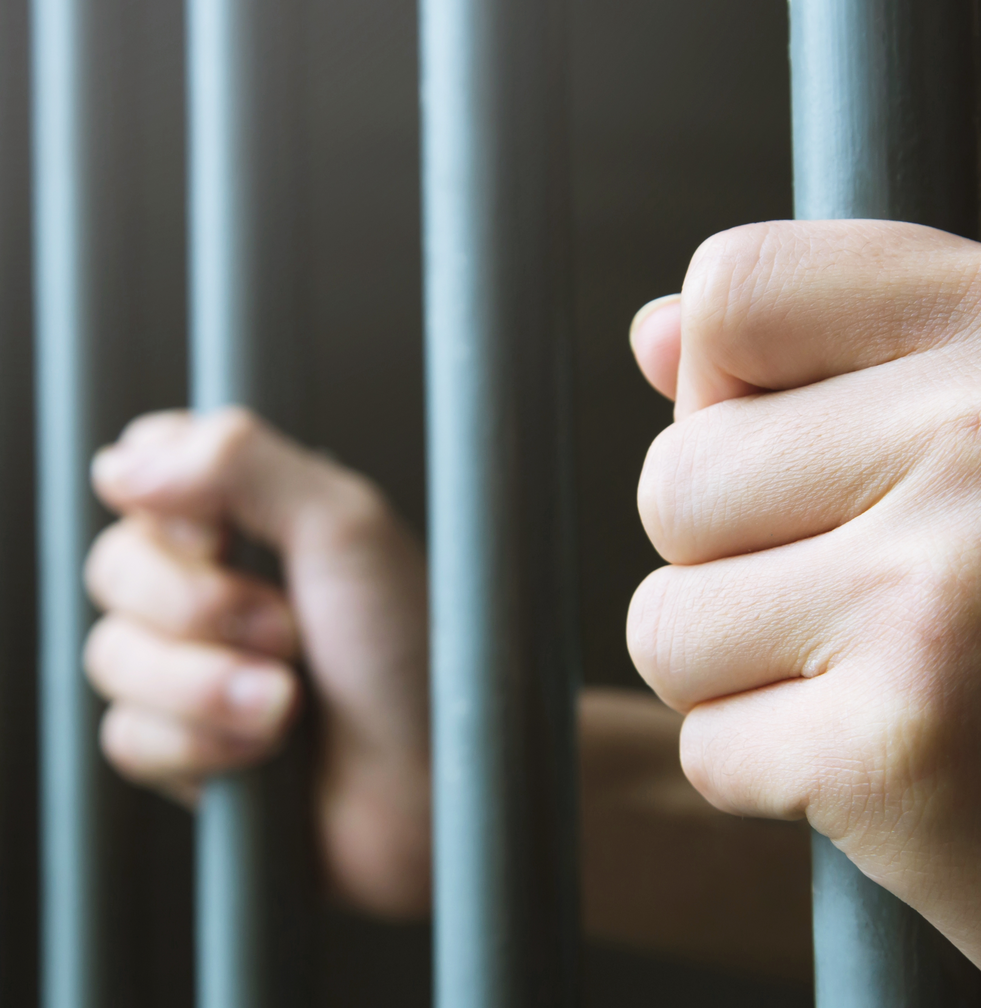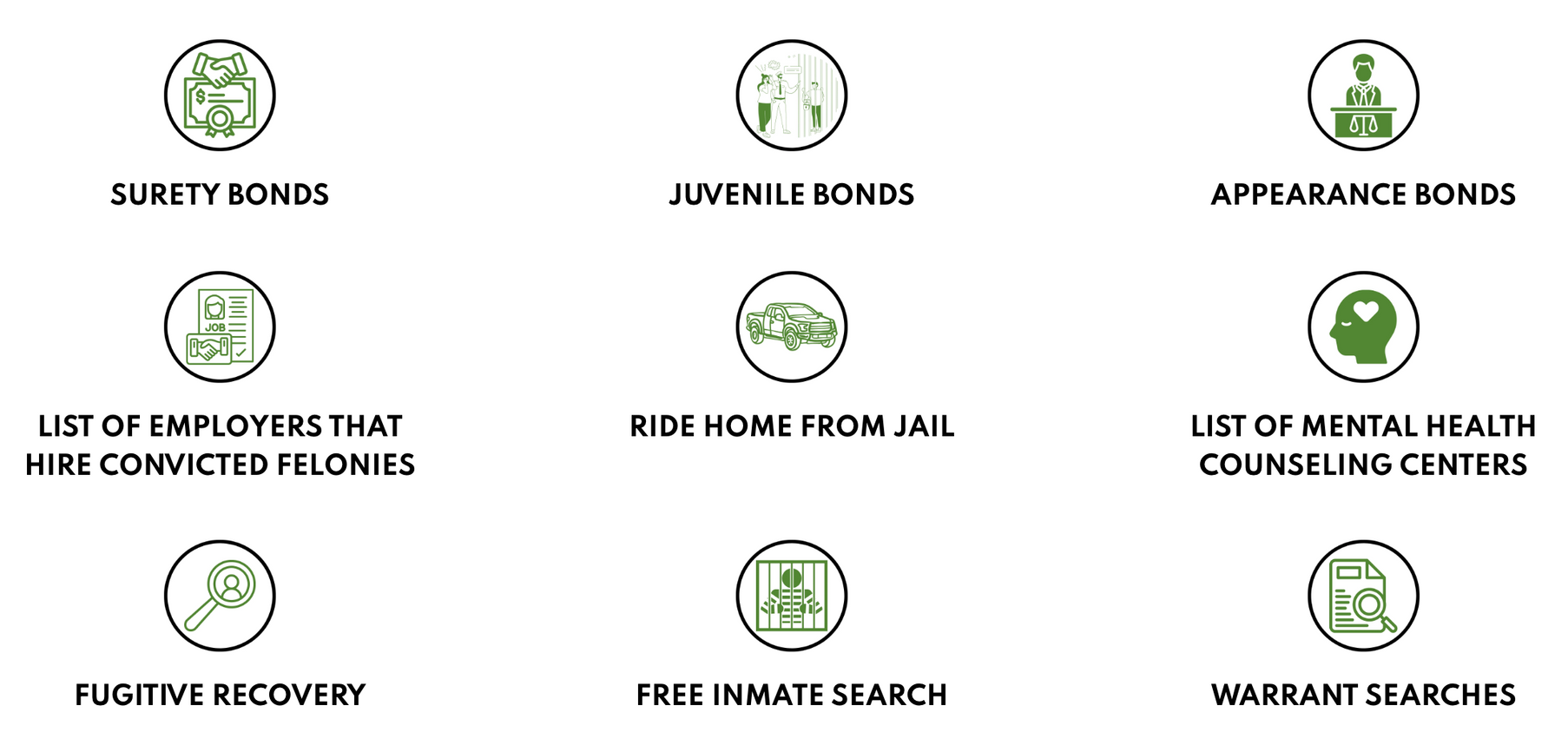Providing Bonds
Since 1987
We're Available
24/7/365
We operate and provide bonds in Wichita and extend our services to the following counties: Anderson, Atchison, Barber, Bourbon, Butler, Clay, Coffey, Douglas, Elk, Franklin, Greenwood, Harper, Johnson, Kingman, Leavenworth, Linn, Miami, Osage, Pratt, Riley, Sedgwick, Shawnee, Sumner.
For your bonding needs, contact us anytime at 316-729-7660, regardless of location or time.
Providing Bonds Since 1987
We're Available 24/7/365
We operate and provide bonds in Wichita and extend our services to the following counties: Anderson, Atchison, Barber, Bourbon, Butler, Clay, Coffey, Douglas, Elk, Franklin, Greenwood, Harper, Johnson, Kingman, Leavenworth, Linn, Miami, Osage, Pratt, Riley, Sedgwick, Shawnee, Sumner.
For your bonding needs, contact us anytime at 316-729-7660, regardless of location or time.
Navigate jail with
dignity. We're here
to guide, not judge.
We recognize the unpleasantness of incarceration. Beyond the time spent in jail, the ordeal can be embarrassing, and navigating court regulations can be frustrating. We aim to ease the process without adding to any humiliation. Our goal is assistance, not judgment. If you need support to get out of jail, contact
Greenfeather Bail Bonds today!

Navigate jail with dignity. We're here to guide, not judge.
We recognize the unpleasantness of incarceration. Beyond the time spent in jail, the ordeal can be embarrassing, and navigating court regulations can be frustrating. We aim to ease the process without adding to any humiliation. Our goal is assistance, not judgment. If you need support to get out of jail, contact
Greenfeather Bail Bonds
today!

From bail to
liberty, we've
got your back
with our range
of services.

From bail to liberty, we've got your
back with our range of services.
From bail to liberty,
we've got your back
with our range of services.
SURETY BONDS
JUVENILE BONDS
APPEARANCE BONDS
List of Employers that
Hire Convicted Felonies
Ride Home from Jail
LIST OF MENTAL HEALTH
COUNSELING CENTERS
Fugitive Recovery
Free Inmate Search
Warrant Searches
FAQs
Got a question?
We’re here to help.
-
What is a bail hearing?
A bail hearing is a court proceeding where a judge determines whether to grant bail to a defendant, and if so, the amount and conditions of bail.
-
How long after an arrest does it take to set bail?
The timing of setting bail can vary but generally occurs within the first 48 hours after arrest, though it can be sooner or later depending on circumstances and court schedules.
-
What is the cost of a bail bond?
The cost of a bail bond is typically a percentage of the total bail amount, often around 10%. For example, if bail is set at $10,000, the cost of the bail bond would be around $1,000.
-
Are there any alternatives to a bail bond?
Yes, alternatives to a bail bond include release on recognizance (ROR), where the defendant is released without bail but agrees to appear for court dates, or pretrial supervision programs.
-
What happens if a defendant flees?
If a defendant flees while out on bail, a bench warrant is issued for their arrest, and they may face additional charges for bail jumping or failure to appear in court.
-
What type of collateral can be used for a bail bond?
Collateral for a bail bond can include property, vehicles, or other valuable assets that are pledged to secure the bond. Cash or bank accounts may also be used as collateral.
-
When does a bail bond end?
A bail bond typically ends when the case is resolved in court, either through dismissal, acquittal, or sentencing. Once the defendant fulfills all court obligations, the bond is discharged, and any collateral is returned.
FAQs
Got a question? We’re here to help.
-
What is a bail hearing?
A bail hearing is a court proceeding where a judge determines whether to grant bail to a defendant, and if so, the amount and conditions of bail.
-
How long after an arrest does it take to set bail?
The timing of setting bail can vary but generally occurs within the first 48 hours after arrest, though it can be sooner or later depending on circumstances and court schedules.
-
What is the cost of a bail bond?
The cost of a bail bond is typically a percentage of the total bail amount, often around 10%. For example, if bail is set at $10,000, the cost of the bail bond would be around $1,000.
-
Are there any alternatives to a bail bond?
Yes, alternatives to a bail bond include release on recognizance (ROR), where the defendant is released without bail but agrees to appear for court dates, or pretrial supervision programs.
-
What happens if a defendant flees?
If a defendant flees while out on bail, a bench warrant is issued for their arrest, and they may face additional charges for bail jumping or failure to appear in court.
-
What type of collateral can be used for a bail bond?
Collateral for a bail bond can include property, vehicles, or other valuable assets that are pledged to secure the bond. Cash or bank accounts may also be used as collateral.
-
When does a bail bond end?
A bail bond typically ends when the case is resolved in court, either through dismissal, acquittal, or sentencing. Once the defendant fulfills all court obligations, the bond is discharged, and any collateral is returned.





